
- This event has passed.
Ecological agriculture on-field farmer trainings: Malawi
November 7, 2022 - November 11, 2022
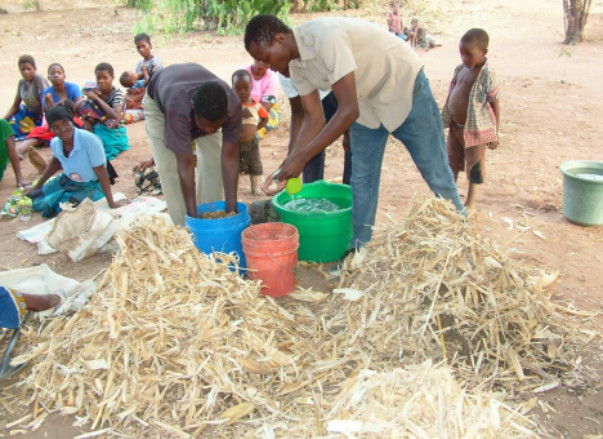
During the week of November 07-11, 2022, the team from Malawi consolidated on finalizing preliminary preparations for our ecological agriculture demonstration plot. They are nearly in the rainy season in Malawi and any time would probably see the first rains. For this reason, it was important to make sure to finish all the set-ups for the demo plot before the onset of planting rains. Farmers learn best when they do it with their hands. The local farmers, most of whom are illiterate, are usually naive to try out new technologies by themselves. The best way therefore, is to try together throughout. This allows them to learn from real-time experience. This is the reason why we are mounting this demonstration plot together with the farmers right from manure making to land preparation to harvesting and post-harvest management and probably to nutrition and sustainable food consumption later. This would help them to learn from every moment and therefore appreciate and adopt ecological agriculture as a solution to climate change.
In this week three activities were carried out namely;
- Manure application on-field trainings
- Agroecology practices trainings through cinema shows
- Organic manure making mobilizations 1
Activity one
On November 07, 2022, first activity of manure application on-field training took place in Kambulaje Village, Machinga, Malawi
Stakeholders involved: [1] Traditional chiefs {2] Faith leaders [3] Women farmer clubs
Target group: Women and boys [15-60 years old]
Partners involved: Investing In early years
Number of participants: 1 male, 12 female; 13 in total
Direct impacted population: 13 Indirect impacted population: 200
Objectives attained:
- Assisted the women farmers to understand steps for applying compost manure in the field.
- Bridging the gender gap in climate and agriculture spaces.
- Helping the women farmers understand organic and sustainable agriculture practices that also nurture the environment.
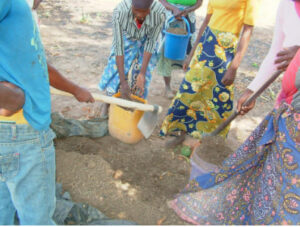
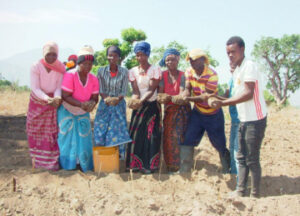
Activity two
On November 10, 2022, a second activity on agroecology training through cinema shows took place in Kambulaje Village, Machinga, Malawi.
Stakeholders involved: [1] Traditional chiefs [2] Faith leaders [3] Women farmer clubs
Target group: Women and men [15-60 years old]
Partners involved: Access agriculture
Number of participants: 4 male, 22 female; 26 in total
Direct impacted population: 26 Indirect impacted population: 200
Objectives attained:
- Sharpened the farmers’ knowledge on some principles of ecological agriculture and its benefits to nature and man.
- Diversifying information dissemination methods in the climate space to make it appealing, inclusive and lucrative.
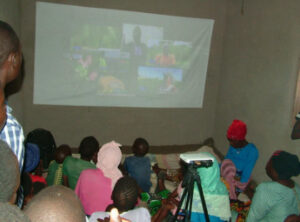
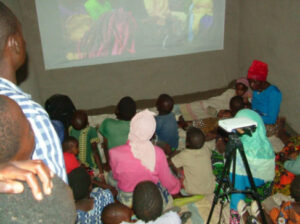
Activity three
On November 09, 2020, a third activity on manure making day for the whole village took place in Kambulaje Village, Machinga, Malawi
Stakeholders involved: [1] Traditional chiefs [2] Faith leaders [3] Women farmer clubs
Target group: Women and men [15-60 years old]
Partners involved: Seventh-day adverntist church
Number of participants: 20 male, 31 female. 51 in total
Direct impacted population: 51 Indirect impacted population: 200
Objectives attained:
• Assisted the Village farmers on types of manure and how to make quick compost.
• Assisted the village farmers on good practices of land conservation that would take care of soil, water, and plants in their agriculture practices.
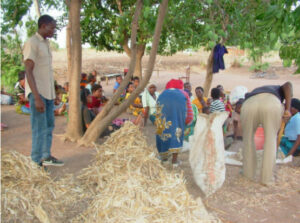
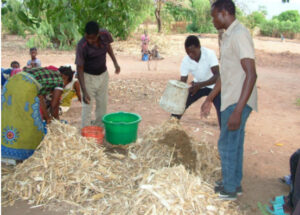

Conclusion
The war against climate change is vast. Consolidating climate actions on the village level could equally be a good start. This initiative will spread from one village to the next. At that pace, we will one morning be able to wake up, realizing we have finally made it into the future we dreamt of. The future is still green if only we keep trying.




